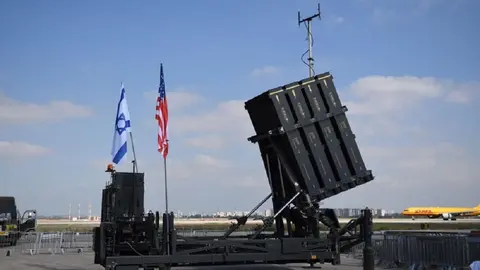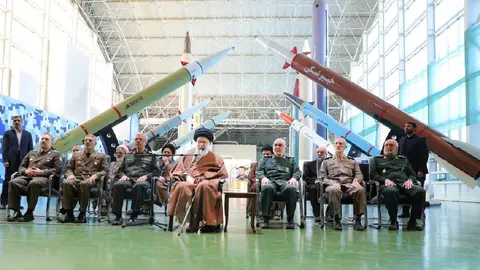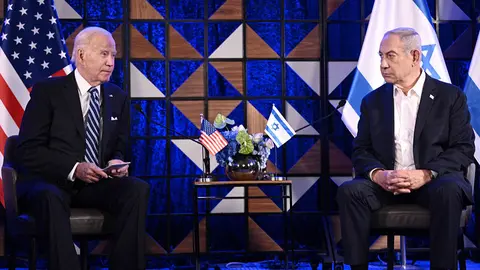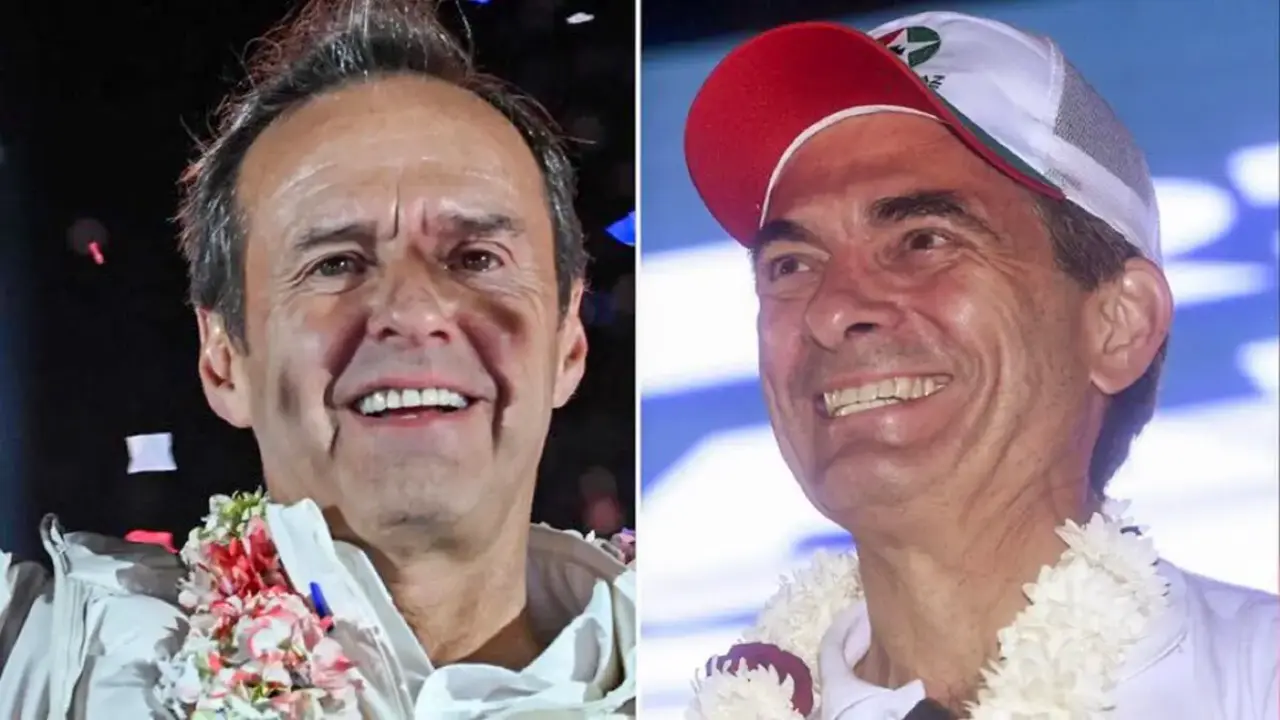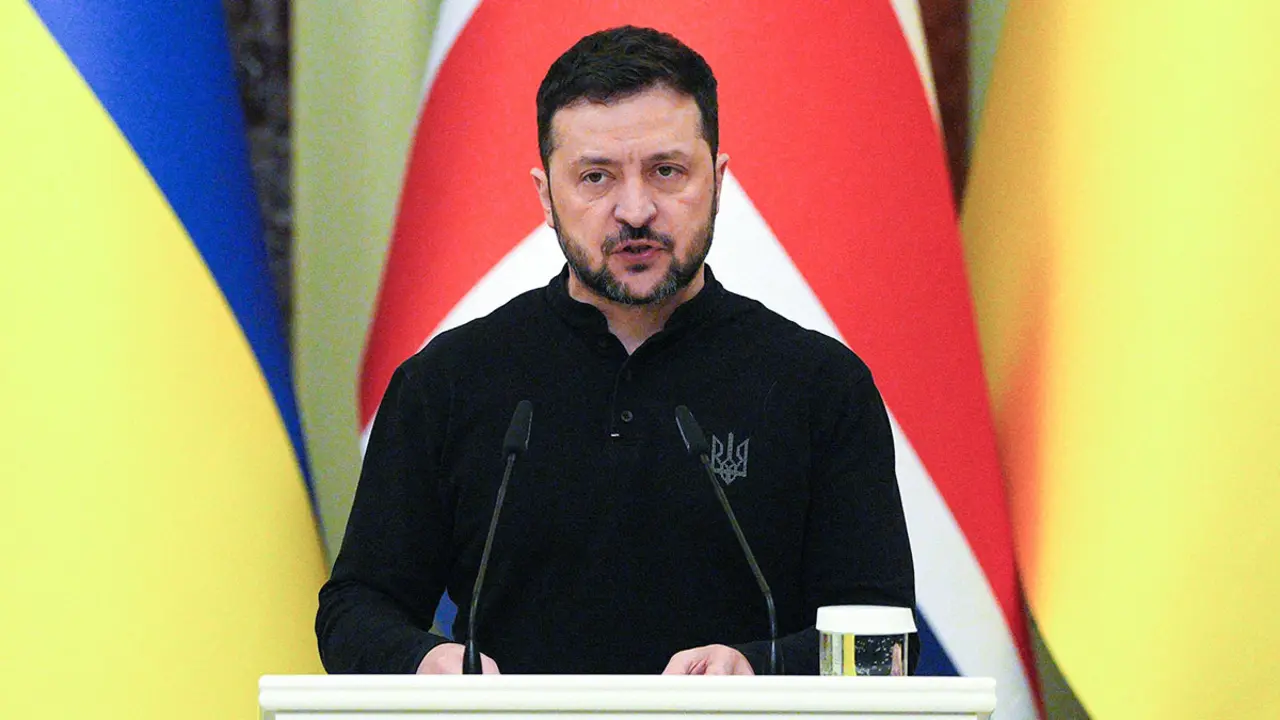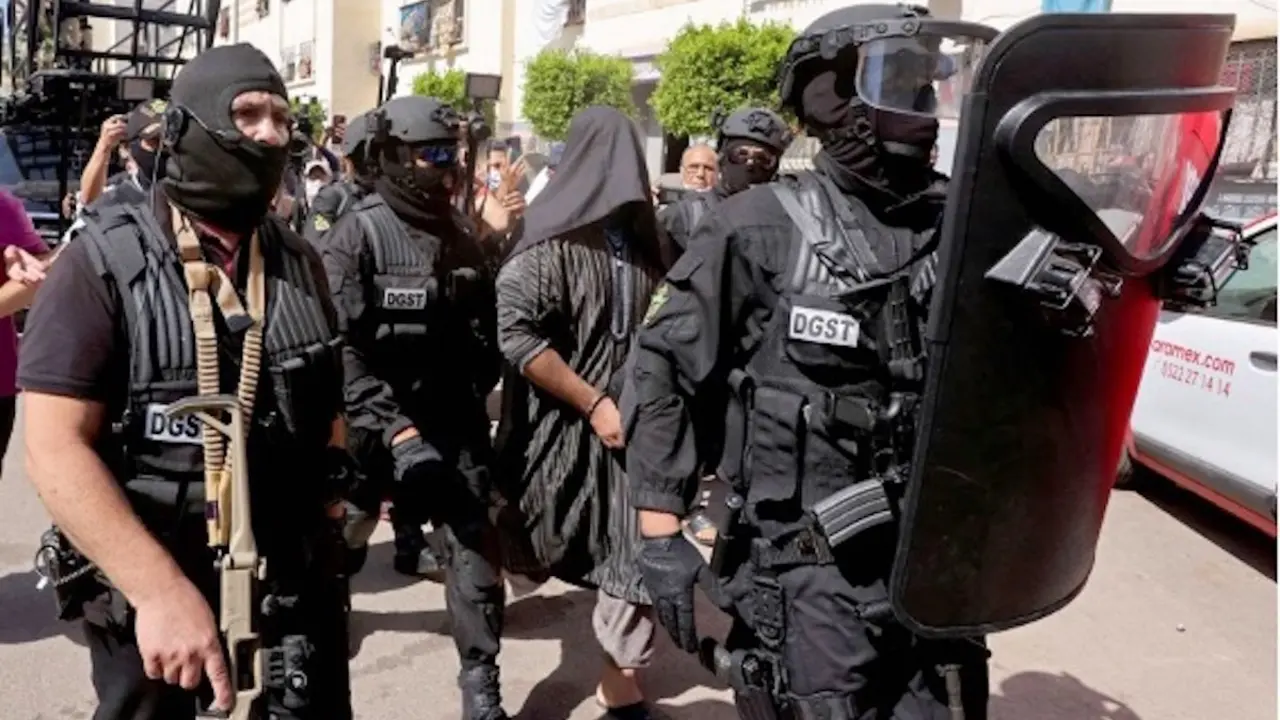Israel vows retaliation after Iran attack, but does not seek a regional war
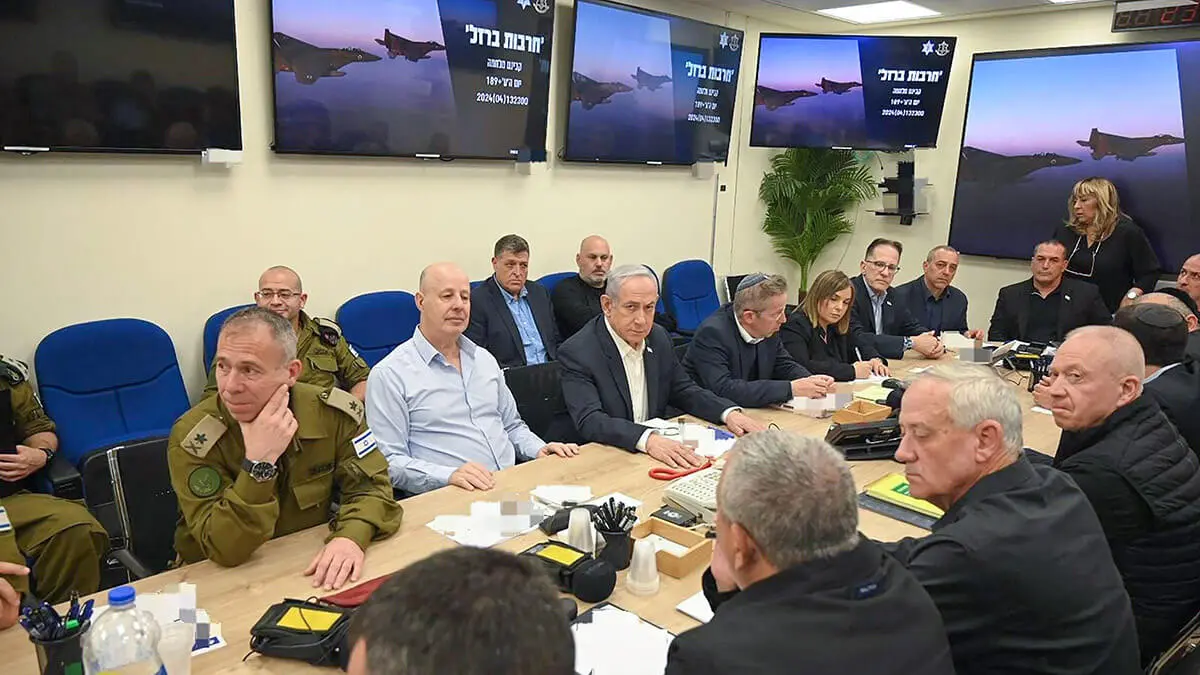
Israel's war cabinet is still assessing the response to last Saturday night's massive Iranian attack. Although it is unclear when it will happen and what its target will be, top Israeli officials have already assured that the launch of 350 drones and missiles into national territory "will be met with retaliation". "Israel is considering the next steps," said General Herzi Halevi, chief of staff of the Israel Defence Forces.
In the same vein, Israeli Defence Minister Yoav Gallant said during a conversation with his US counterpart, Lloyd Austin, to whom he indicated that Israel "has no choice but to respond" to the unprecedented attack, Axios reports.
As senior US officials explained to the media, Gallant told Austin that Israel cannot allow ballistic missiles to be launched at its territory without a response. He also stressed that Jerusalem will not accept Iran responding with a direct attack every time Israel strikes targets in Syria.
Saturday's Iranian attack came after an Israeli bombing killed a senior Iranian general and other military personnel in a building adjacent to the Iranian embassy in Damascus.
The US Defence Secretary reiterated the words of President Joe Biden during his conversation with Benjamin Netanyahu, stressing the need to do everything possible to prevent further escalation.
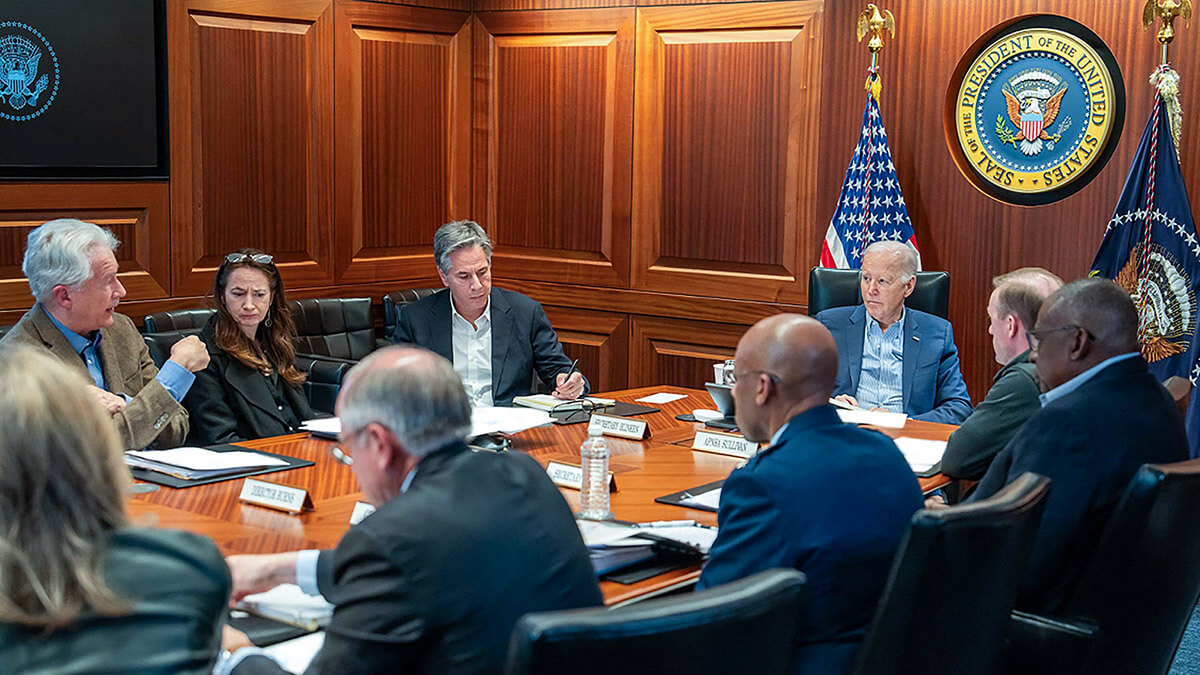
Regarding this possible retaliation, the US expects it to be directed against key targets outside Iran in an attempt to avoid further conflict. Among these potential 'key targets outside Iran' are pro-Iran militias in Syria and the Tehran-backed terrorist group Hezbollah in Lebanon. As several senior US officials explained to NBC, the lack of serious damage following the Iranian strike may lead Jerusalem to seek a less aggressive response.
Despite the large number of drones and missiles, Israeli air defence intercepted 99 per cent. Many of the drones were destroyed before entering Israeli airspace, both by the Israeli Air Force and by Jordan, the US and the UK. Initially, it was also claimed that Saudi Arabia had intercepted Iranian drones, although the Saudi media outlet Al Arabiya recently denied Riyadh's involvement in the operation.
This is incredible - watch this footage of recent Interceptions by the Naval version of the Iron Dome defense system: The "C-Dome"@RAFAELdefense pic.twitter.com/bVUBA9jRhI
— Yaari Cohen (@YaariCohen) April 16, 2024
According to Israel's Channel 12, the Jewish state will strike back "clearly and forcefully" in order to send the message that Israel "will not allow an attack of this magnitude against its territory to happen without a reaction".
However, the Hebrew media outlet added that Israel does not want its response to trigger a regional war or destroy the multinational coalition that helped it fend off Iran's attack. Jerusalem also intends to coordinate its action with Washington, while informing allied countries such as Jordan, Egypt and the Gulf states that its response, when it comes, will be carried out in such a way that Iran cannot implicate them in retaliation.
Iron Dome in action near the Ben Gurion airport. pic.twitter.com/My0ua5JeXk
— Hananya Naftali (@HananyaNaftali) April 13, 2024
In the midst of this situation, and while international leaders call for restraint, the Islamic Republic of Iran has threatened to respond to any action against its interests, including those located abroad.
"The smallest action against Iranian interests will surely receive a severe, widespread and painful response against any perpetrator," Iranian President Ebrahim Raisi told Qatari Emir Tamim bin Hamad al-Thani.
Meanwhile, Iranian Deputy Foreign Minister Ali Bagheri Kani said that Tehran's counteroffensive after any Israeli retaliation would be carried out "within seconds", stressing that Iran would no longer wait another 12 days to respond.
Hamas rejects new ceasefire
Despite the regional escalation, diplomatic efforts continue to seek a ceasefire in the Gaza Strip that would allow the release of more than 130 Israeli hostages held by Hamas and other terrorist groups.
The latest truce proposal was rejected last week by Hamas, which demands a permanent ceasefire, the full withdrawal of the Israel Defense Forces from Gaza and the return of Gazans to the northern part of the enclave. The terrorist group also demands the release of a large number of Palestinian prisoners in Israeli jails.
Liri, Shiri, Shay 💔
— Bring Them Home Now (@bringhomenow) April 15, 2024
It’s unbelievable that we are still counting the days,
and they haven’t come home yet. Too much time has passed while they are all still there.
THE TIME IS NOW!
We must bring them all back home. Now!#bringthemhomenow 🎗️ pic.twitter.com/Pn5Z8AvNhh
In exchange, Hamas would be willing to release in the first stage only 20 "humanitarian" hostages - this category includes minors, women, the over-50s and the sick. The proposal drawn up by Qatari, Egyptian and US mediators in Cairo envisaged the release of 40 hostages in this category.
However, the terrorist group has stated that it no longer has 40 "humanitarian" hostages alive. In this regard, Hamas said that many have been killed and that others are in its custody.
"Sinwar (the Hamas chief in Gaza) does not want an agreement. He doesn't care if Gazans continue to suffer, even after the extraordinary Israeli flexibility on all parameters of the US proposal", an Israeli official stressed to The Times of Israel regarding Hamas' new refusal.


